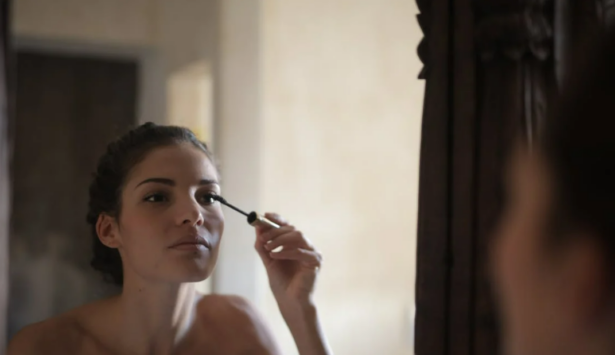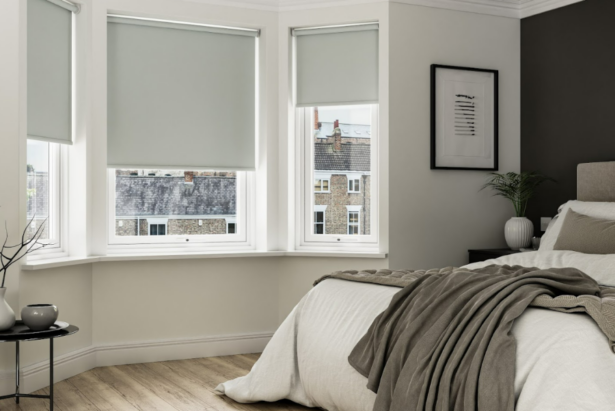Beauty and the sight: Eye expert reveals six beauty habits that harm your eyes
It’s easy to disregard bad habits that affect you cosmetically, but what if you knew they could be impacting your eye heath and potentially your vision too? You might not realise it now, but some of your everyday beauty habits could be damaging your eyes.
Nimmi Mistry, professional services optician at Vision Direct (www.visiondirect.co.uk), shares six common beauty habits that could be damaging your eyes and how to break them.

1. Sharing makeup
Your eyes are the most sensitive part of your face which contains a lot of personalised bacteria so by sharing makeup you’re essentially trading germs. Cross-contamination occurs when you use the same brushes, mascara, eye-shadow and eyeliner with someone else. A 2020 study (pubmed.ncbi.nlm.nih.gov/31597215/) found that make-up brushes were found to have staphylococcus aureus present. This is a major pathogen of the eye able to infect the tear duct, eyelid, conjunctiva, cornea, anterior and posterior chambers, and the vitreous chamber. One infection this could lead to is bacterial conjunctivitis.
The person you are sharing makeup with may not even know they have an infection, but this won’t stop it spreading through sharing makeup. Bacterial conjunctivitis can be treated with eye drops to help with your symptoms. If symptoms persist after two weeks of treatments speak to your doctor. Wearing contact lenses whilst having an eye infection can slow down the recovery and aggravate your eyes, so stop wearing your contact lenses until the infection has completely cleared and be sure to throw away any eye makeup used from the moment symptoms were experienced.
2. Not removing makeup before bed
As tired as you may feel after a long day it’s important that you remove your makeup before you go to bed. Trapped make-up particles can irritate the surface of the eye and cause a foreign body sensation, which is having the feeling like you’ve got something in your eye.
Before you remove your makeup be sure to wash your hands as they carry a lot of bacteria. You should consider using cleansing water and cotton pads to remove the first layer of makeup and then use a cleanser to wash away the oil and stubborn build-up. Ensure you indulge in a good skincare routine before sleeping and make a habit of moisturising the skin around your eyes, with an eye appropriate moisturiser. Be sure to use a gentle cleanser for eye makeup to ensure you don’t irritate the delicate skin around your eyes.
3. Using expired products
In the same way that dirty makeup brushes can have bacteria build up on them, so can the makeup products themselves. Even though makeup contains preservatives that help prevent bacteria from living in the products, they can still be contaminated with regular use. Take mascara for example, the spool touches the eyelashes and then is placed back inside the product. This happens repeatedly, often without the spool being cleaned, leading to the spread of bacteria to the eyes.
Here are some general replacement guidelines for eye makeup products:
• Mascara and liquid eyeliner typically are considered safe to use for three months, six months maximum. Liquid products used near the eye have an increased risk of spreading bacteria.
• Pencil-style eyeliners and gel eyeliners can be used for up to a year.
• Powder products, such as eye shadows, if stored properly, free from moisture and used with clean brushes/applicators, are good for up to two years.
Ensure that you check the dates on cosmetics and check the manufacturer’s instructions on the packaging so you know how long products should be kept for safe use.
4. Applying harsh chemicals
Avoid applying products that contain harsh chemicals around your eyes. These can irritate the skin and, if yours is particularly sensitive, it could also cause an allergic reaction. If in doubt, check the ingredients and pay close attention to the packaging, but bear in mind some packaging will not explicitly state if the product is suitable for use around the eyes.
When trying a new skincare product, it is recommended that you do a patch test, trying a small amount applied to a small area daily for three to five days and monitoring for any unwanted reactions.
5. Not wearing sunglasses
Protecting your eyes from the sun is a must. Prolonged exposure to UV rays from the sun modifies lens proteins of the eyes, this can lead to cataract formation and worsening eyesight. Over time, cataracts can make vision blurry, hazy, or less colorful. There is also the added risk of increased chances of developing cancers of the eyelid, including basal cell carcinoma and squamous cell carcinoma, both of which are linked to UV exposure.
To protect your eyes consider wearing sunglasses with UV protection, and don’t be fooled by overcast days. The UV levels may still be high even when it is cloudy, for this reason, it is recommended that you use an SPF face cream every day. It’ll protect your skin from harmful UV exposure. Even with sunglasses Doctors advise a thin application of SPF around the eyes as additional protection. But always take care when applying any product around the eye. If you wear contact lenses, you can also opt for those which have added layers of UV protection.
6. Following dangerous TikTok “hacks” and trends
There are thousands of new beauty trends emerging with some going viral, but this does not mean you should jump on the bandwagon and be quick to try them all. Sometimes there is no scientific evidence or expert opinion backing these quick fixes, and while some may be considered harmless, there are often one or two that are potentially dangerous.
For example, heating up eyelash curlers with a lighter for an extra long-lasting lift is extremely dangerous and can lead to burns, cause your lashes to fall out, and cause potential injury.
Another example of this is the bleached brows trend. To cut down on costs many opt to bleach their eyebrows at home, but you need to be careful. Bleaching involves using a milder formulation of hydrogen peroxide. Even in its lowest formulation, it has the potential to cause injury to the eye, and blindness in extreme cases. Many hair dye products state that they are not to be used near the eyes, so it’s best practice to seek professional help from salon experts who should do a patch test and use the appropriate dyes, before proceeding with your brow bleaching.
Transformative camping experience with festival vibes near London
Wild Canvas, a camping pop-up renowned for its lively festival vibes and exceptional reviews, continues to provide an incredible experience.
Event running from 3rd August to 29th August – book soon to avoid disappointment.

Wild Canvas is a one of a kind camping experience with a relaxed festival atmosphere nestled within the picturesque riverside meadows of the historic Turvey House Estate in Bedfordshire. Now in its fourth year, the event runs through the school summer holidays and is the perfect location for camping and relaxation. Guests can look forward to escaping the everyday and immersing themselves in nature, music, creative arts and wellness. With a very welcoming and relaxed ethos the campsite is perfect for all ages.
There is a range of activities on offer, free and fee-charging, from wild swimming and stand-up paddle-boarding to dance classes to children’s activities such as nature club and their ever popular superhero kid’s disco. Many bring inflatable kayaks and paddle boards to enjoy cruising down the River Great Ouse with some bravely swimming the length of the site to make it to the bar!
Guests can choose from a variety of accommodation options including beautiful traditional Tipis handmade in Glastonbury, modern Yurt-Tents and the option to bring their own tents (BYOT) or camper vans on generously spaced grass pitches. Tipis and Yurt-tents sleep 4 people and start from £30 per person, per night,* and are furnished with bedding, complimentary outdoor fire pits, outdoor seating and complimentary buggy transfer.
The boutique campsite features hot water washing up sinks, private cubicle showers, both flushing and compost toilets and has a central campfire most evenings to enhance the ambience and ‘communal’ spirit.
On-site food is provided by “The Riverfront Kitchen” where you can expect open flame cookery, rustic BBQ options, wood fired pizzas and environmentally conscious food truck catering that will be delicious, fresh and foodie. Guests can also enjoy local ales and signature cocktails at the festival style bar.
While Wild Canvas’ groovy playlists set the tone, the weekends come alive with an all-star roster of live DJ’s who keep the party going.
Founder Serkan Cetin says “Whether you want to stay three days or a fortnight, the setting encapsulates everything Wild Canvas is about: barefoot luxury with a laid-back vibe, getting out in the fresh air, enjoying music whilst hanging out with friends and family in the great outdoors. With many holidaying at home this year, Wild Canvas is a truly unique experience in close proximity to London.”
For bookings, visit www.wildcanvas.uk
Quick beauty tips for healthier eyes:
• Wash your makeup brushes regularly with a gentle soap or makeup cleanser. Failure to do so increases the potential for spreading bacteria to your eyes.
• Throw away eye makeup after an eye infection. If you go back to using the products, you are putting your eyes at risk of becoming infected again. Avoid using any eye makeup until the infection has completely cleared.
• If your mascara becomes dry you should throw it away and buy a new one. Do not add water or saliva to the mascara as saliva is full of bacteria.
• Ensure you store your makeup in a cool dry place to prevent the make-up from degrading.
• Take extra care when using glitter eye shadows as small pieces of glitter can irritate the eye
BlindsbyPost have a range of thermal blinds which are the perfect summer essential for keeping homes cool.
With a heatwave predicted to hit the UK this week, homeowners are moving quickly to lock out warm temperatures from the home to encourage a more comfortable indoor temperature. Searches for ‘how to keep my home cool’ peaked last July in the wake of uncharacteristically warm weather across the country.

Credit BlindsbyPost- Solo Blackout Roller
It may come as a surprise, but thermal blinds have just as much of a role to play in the summer as they do in winter. The insulating layer built into the fabric means that they can reflect heat entering windows as well as preventing heat loss during the colder months, making them a worthy investment year round in the face of more recent weather activity and extreme events.
Oliver Hudson, blinds expert at BlindsbyPost, says: “You can check how much you can save by installing thermal blinds with our online calculator as it makes a huge difference to household bills – potentially up to £288 a year depending on the blind type and fit.
“Thermally backed blinds are just as important in summer as in the winter, but many people overlook this benefit and believe they are only an effective way of maintaining a comfortable temperature in the winter time. This is not true, and as we head into summer we expect to see more people enjoying the benefits of these kinds of products to avoid using energy to power products like fans and air conditioning units which will now prove to be astronomically expensive.”
3 ways to protect your hair this summer
By Lucy Furniss

Summer is just around the corner and while we are great at protecting our skin, our hair can sometimes get left behind for protection. While there’s many environmental factors to consider from sun to salt water, this causes our hair to really feel the impact heavily. Thankfully though, there are some steps we can take to prevent our luscious locks from really feeling it this summer.
WEAR YOUR NATURAL HAIR
Lay off the heat this summer by embracing your natural locks. Put a bit of leave in conditioner to moisturise those parched strands, then let your natural texture do its thing. Even try out some different styles like a slick back bun inspired by Bella Hadid. A style which requires zero heat, but makes you look so put together. (also a personal favourite of mine).
My favourite for the girls wanting their natural texture to feel soft and moisturised, without weighing the hair down, is the waterfall moisture and shine lotion by RandCo.
Product:
www.randco.com/collections/prep-detangle/products/waterfall-moisture-shine-lotion
MOISTURE PRODUCTS
The combination of sun’s UV rays, salt from the ocean and chlorine can make your hair feel extra dry. This is why it’s essential to be using moisture products, from deep conditioning masks, to leave in conditioners.
My favourite mask to use during the summer is Soleil UV Défense Active Hair Mask by Kerastase. Designed specifically for after the sun, by intensely nourishing sun exposed hair and helps to improve shine, frizz and hydration.
Product: www.kerastase.com.au/collections/soleil/soleil-masque-uv-defense-active-hair-mask/masque-apres-soleil-hair-mask.html
PRODUCTS FOR WHEN SWIMMING IN OCEAN/POOL
I’m sure the majority of people’s summer includes loads of swimming, whether that’s in an ocean or pool. This means there’s work to be done to keep those locks feeling hydrated and to protect from those harsh UV rays.
My favourite mist to spray in your hair before and after swimming to protect moisturise and protect your hair is the Goldwell dualsenses rich repair restoring serum spray. Helping to instantly reconstruct as well as providing shine and moisture to the hair.another hot tip from me is to rinse out your hair as soon as you can from coming out of the water.
Product: www.goldwell.com/en-za/education/product-knowledge-sheets/dualsenses/rich-repair/restoring-serum-spray/
Bio: Lucy is a Senior Hairstylist and Creative Director at a leading Sydney-based Salon. With a passion for enhancing your natural hair she loves seeing the transformation that a simple cut, colour and style can make. Lucy also does a lot of freelance and editorial work in the creative space where she loves pushing the boundaries with elevated hair looks.
Weblink: www.instagram.com/lucyfurnisshair/










